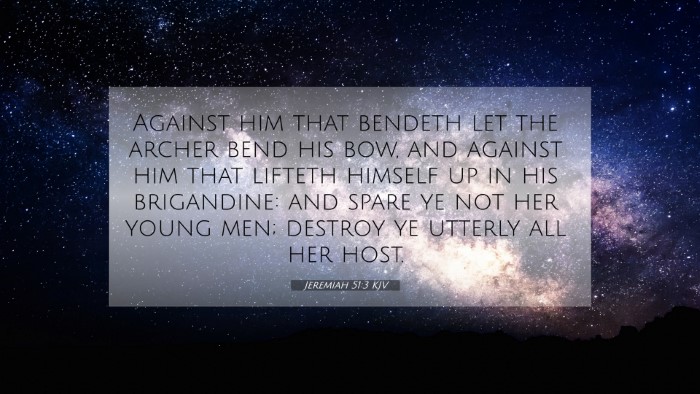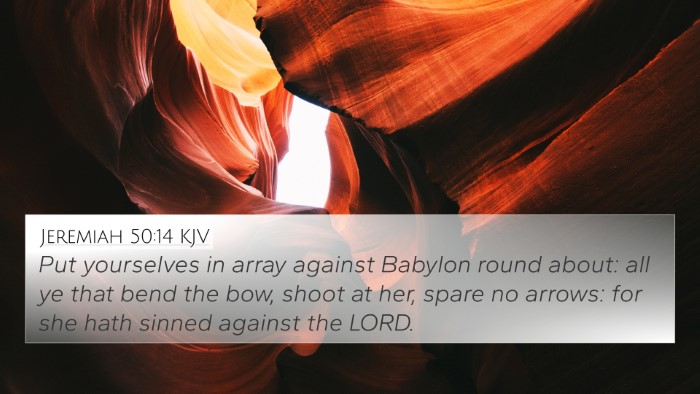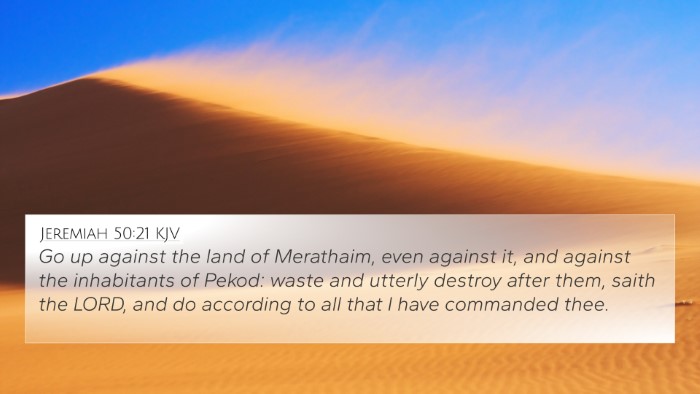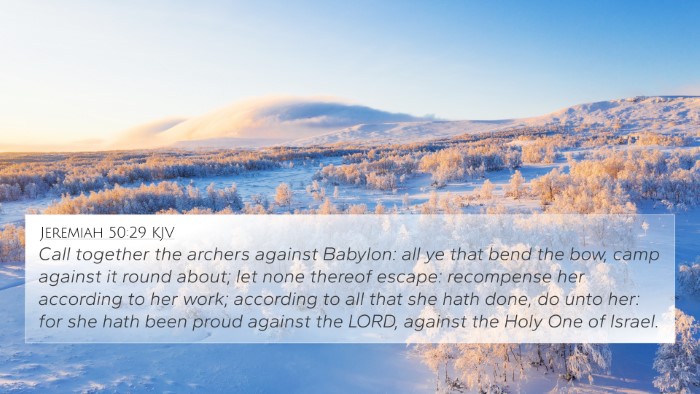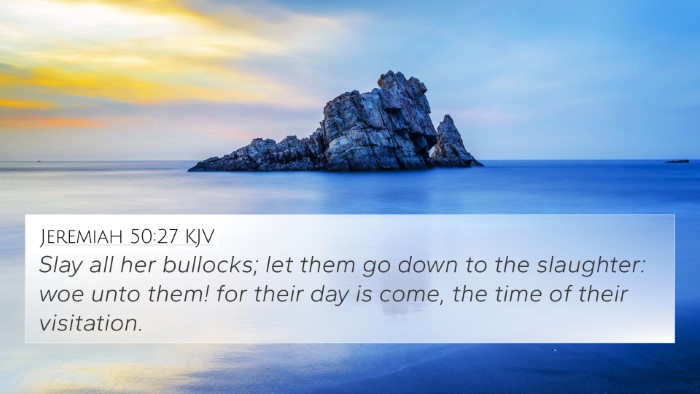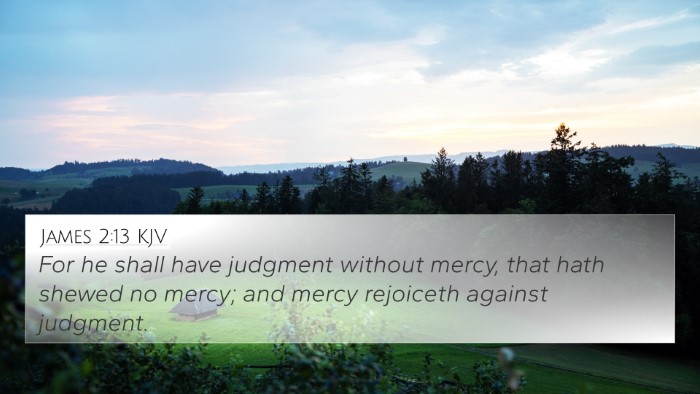Understanding Jeremiah 51:3
Bible Verse: “Against him that bendeth let the archer bend his bow, and against him that lifteth up himself in his brigandine: and spare ye not her young men; destroy ye utterly all her host.” (Jeremiah 51:3)
Overview of the Verse
Jeremiah 51:3 encapsulates a strong message of judgment against Babylon, symbolizing the divine retribution that awaits nations that defy God. The imagery of archers and their bows signifies preparation for battle, while the instruction to spare no one highlights the totality of God’s judgment.
Key Themes and Meaning
- Divine Judgment: The verse emphasizes God's righteous judgment against the oppressors of Israel, who had suffered greatly at the hands of Babylon.
- Moral Retribution: It signifies the moral order by which nations will be held accountable for their actions, particularly against God's people.
- Destruction of the Oppressor: The call to destroy utterly signifies complete devastation of Babylon, reflecting God's capacity to execute justice.
- The Role of the Archers: The archers represent God’s agents of judgment, indicating that His will is enforced through human means, often representing nations or armies appointed for divine purposes.
Connections to Other Bible Verses
This verse corresponds with several other passages that discuss themes like divine judgment and retribution:
- Isaiah 13:16: “Their children also shall be dashed to pieces before their eyes; their houses shall be spoiled, and their wives ravished.”
- Lamentations 3:66: “Persecute and destroy them in anger from the gates of the cities of the Lord.”
- Revelation 18:6: “Reward her even as she rewarded you, and double unto her double according to her works.”
- Romans 12:19: “Dearly beloved, avenge not yourselves, but rather give place unto wrath: for it is written, Vengeance is mine; I will repay, saith the Lord.”
- Isaiah 47:6: “I was wroth with my people, I have polluted mine inheritance, and given them into thine hand: thou didst show them no mercy.”
- Matthew 22:7: “But when the king heard thereof, he was wroth: and he sent forth his armies, and destroyed those murderers, and burned up their city.”
- Micah 5:15: “And I will execute vengeance in anger and fury upon the heathen, such as they have not heard.”
Interpretation from Public Domain Commentaries
Matthew Henry's Commentary
Matthew Henry notes that this verse illustrates the complete destruction of Babylon, which serves as a warning to all nations that oppose God. He emphasizes that the archer represents God's agents who execute judgment, and that God commanded total destruction without mercy. This reflects God's justice and serves as a call to awareness of divine retribution.
Albert Barnes' Notes on the Bible
Barnes highlights the metaphorical significance of the archer, denoting an impending judgment that is precise and efficient. He explains that the reference to her young men symbolizes the futility of power against God's will. The call for destruction underscores the thoroughness with which God will eradicate the enemies of His people.
Adam Clarke's Commentary
Adam Clarke elaborates on the imagery of the archer and the stronghold, pointing to the deliberate plans of God for Babylon's downfall. He stresses that this prophetic declaration serves not only as judgment on Babylon but also as a reassurance to Israel that their suffering will not go unpunished.
Importance of Cross-Referencing Biblical Texts
Understanding scripture is greatly enhanced through cross-referencing Biblical texts. Here are some key benefits of this method:
- Deeper Insight: Linking Bible scriptures allows for a deeper understanding of the themes and messages present in the text.
- Thematic Connections: It helps in identifying thematic Bible verse connections across both the Old and New Testaments.
- Comparative Analysis: Engaging in comparative Bible verse analysis enhances one’s grasp of God's consistent character and dealings with humanity.
- Scriptural Context: Cross-references offer context and illuminate the continuity of God’s message throughout the scriptures.
How to Use Bible Cross-References
To effectively utilize cross-references in Bible study:
- Use a Bible concordance or a Bible cross-reference guide to locate verses that relate to specific themes.
- Identify Bible verses that relate to each other to enrich your understanding of biblical narratives.
- Engage in cross-reference Bible study methods to analyze how different passages inform each other.
- Create personal notes or summaries that highlight Bible verse parallels and their significance in your study.
Conclusion
Jeremiah 51:3 serves as a powerful reminder of God’s justice and the inevitable consequence of sin. Through the insights provided and the inter-Biblical dialogue established by relating this verse to others, believers can find assurance in God's sovereign plans and can appreciate the intricate web of support that scripture provides.


